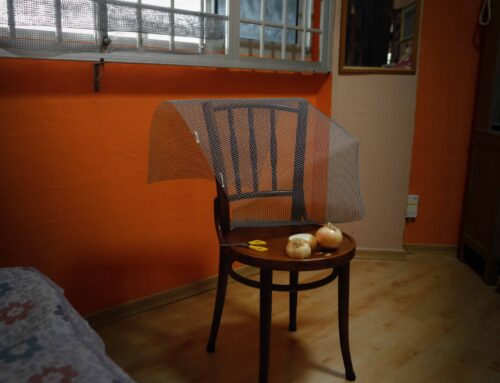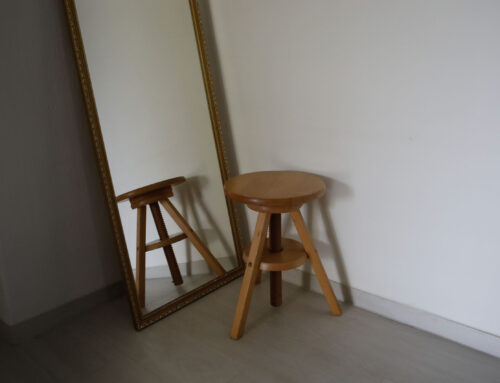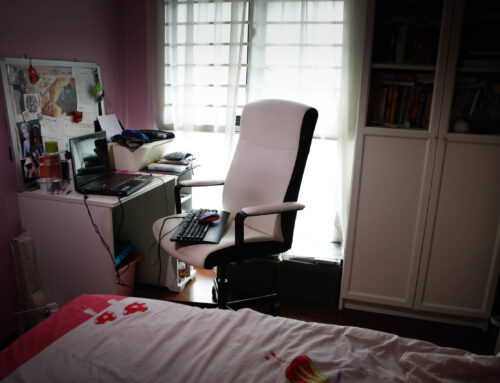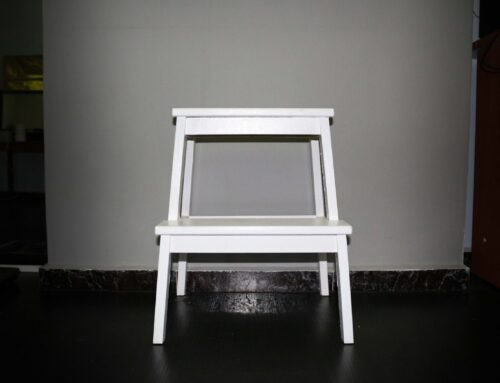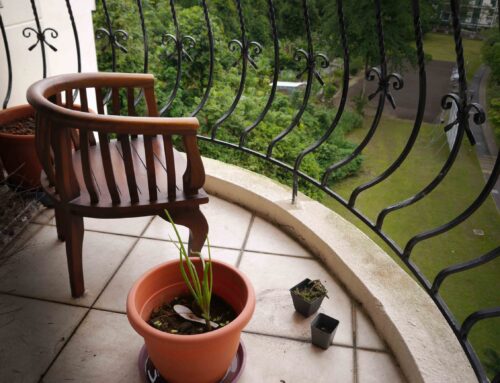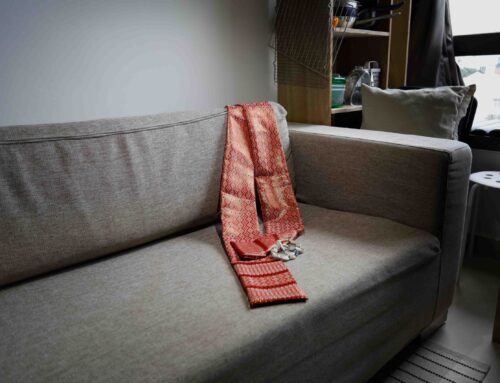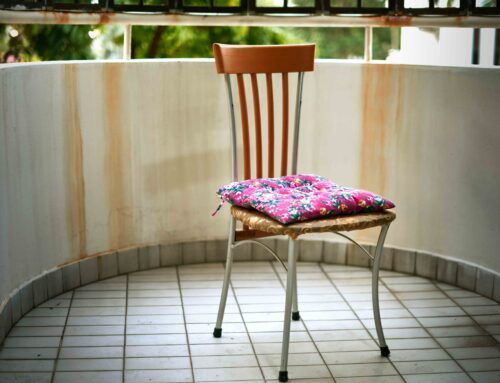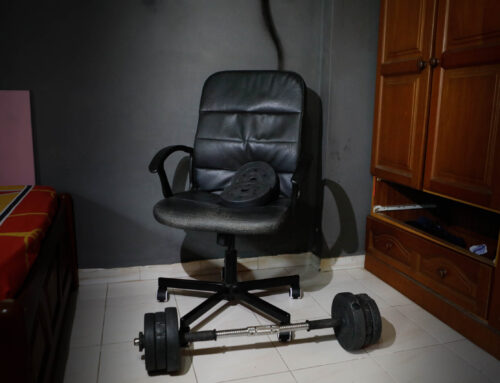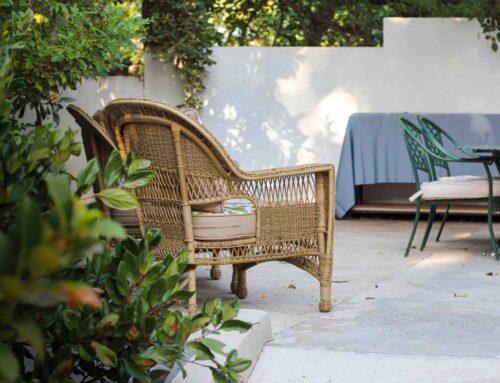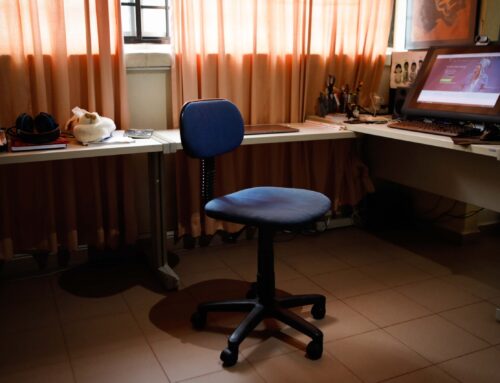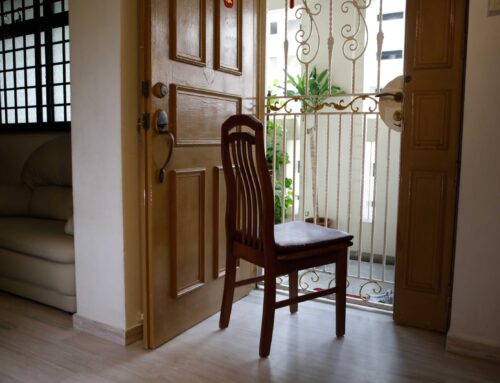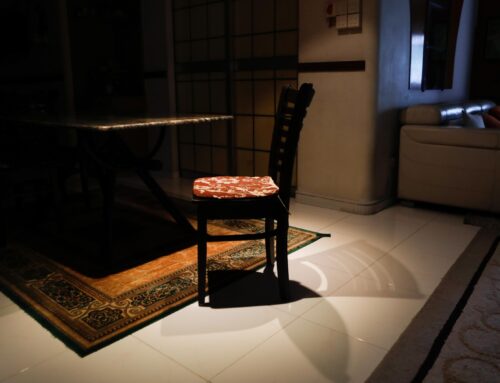Triple-guarded Windows
Jenny Faith Koh
I pulled my luggage up to the doorstep of my parents’ HDB flat and hesitated. If not for the COVID-19 economy, I might not have been back here. But things could have improved in the last several months, right?
I entered and was greeted by a purple, tired-looking, bulbous vegetable sitting atop the shoe rack.
“Mum, why is there an onion here?”
“It’s to ward off COVID,” she replied from the kitchen.
“Is there any scientific evidence to this? Where did you hear this from?” I said, my eyebrows knitted as I recalled the absurdity I had to live with.
“My friends sent me videos saying cut onions can ward off viruses and bacteria.”
I glanced at Dad instinctively to check his mood. He didn’t look angry and even seemed relaxed. But I quickly reminded myself not to let my guard down lest the tide turn. I never could figure out what might trigger his temper.
I wrinkled my nose. “There’s a bad smell.”
“No smell mah,” Mum said.
It was unbearable—how was I going to live here? I took a deliberate whiff to try and identify the real source of the smell. Damp clothes? Perspiration … body odour? And … mothballs or insecticide?
We all build internal sea walls to keep at bay the sadnesses of life and often overwhelming forces within our minds. In whatever way we do this—through love, work, family, faith, friends, denial, alcohol, drugs, or medication—we build these walls, stone by stone over a lifetime.
I flung the door wide open. I blasted the ceiling fan. I pushed the sliding windows open and felt a piercing pain on the side of my palm. I turned my hand and realised I had scraped my skin against the primitive BBQ grill wire mesh, affixed to the bottom half of our window grille with nylon cable ties.
Having moved away, I had forgotten I had to be cautious about handling the windows because of those damn wires. Mum’s resolute attempt to keep rats and cats from entering our house. I’d seen them—cats, not rats—at our doorstep, twice. At the time I felt happy—perhaps they came because they liked us?
One of the most difficult problems is to construct these barriers of such a height and strength that one has a true harbor, a sanctuary away from crippling turmoil and pain, but yet low enough, and permeable enough, to let in fresh seawater that will fend off the inevitable inclination towards brackishness.
“Because we stay low floor, common corridor,” she emphasised whenever I protested about these wires, “robbers can put their hands through our window grille or people can peep in.”
We already had frosted privacy window panes, grey square-patterned window grilles, and the windows locked when we were asleep or when no one was home. Weren’t these measures sufficient? I’ve had rows with her about this for years and knew better than to start again. Ironically, staring at these windows made me feel unsettled rather than safe. It made me feel trapped in a prison cell, probably symbolic of what I had been facing most of my life.
For someone with my cast of mind and mood, medication is an integral element of this wall: without it, I would be constantly beholden to the crushing movement of a mental sea; I would, unquestionably, be dead or insane.
Only when I moved out did I realise a home could be a peaceful place and not a minefield. I often caught myself smiling even while doing chores like cooking and cleaning. My productivity at work increased many times over. My dentist who had not known much about me, remarked casually about my lifted spirits. But, how could I afford to rent a place with the current unpredictable economy and grim job market?
Over the next few days, I discovered Mum had been using an insect repellent she had bought, from Facebook Live, around our house and on the furniture.
“Can you stop spraying for a while so I can investigate where the stench is from?”
“It’s pandan flavour, can’t be this. It prevents cockroaches, insects, and more importantly mosquitoes, which can cause dengue fever,” She attempted to convince me.
Dad also began to use insecticide excessively even on harmless flies.
The kitchen window grille was “decorated” with more than a dozen types of reusable and disposable face masks. Each mask was pinned up by a clothes peg, on a square of the window grille. It was not only an eyesore, but also obstructed potential breezes. I rehung them all on one side to let some proper wind in. My repeated requests for them to follow suit fell on deaf ears, and I found myself having to re-hang them every other day. With everything else I was already enduring, I wanted to act on every possibility that could allow me to have, at least, odourless air.
Late one night, I was in a Zoom call with my cell group, my church friends praying for me, knowing I had reluctantly moved back home. Their voices were drowned out by my parents’ quarrelling in their bedroom. If I couldn’t hear their prayers, would I still be able to receive them?
But love is, to me, the ultimately more extraordinary part of the breakwater wall: it helps to shut out the terror and awfulness, while, at the same time, allowing in life and beauty and vitality… After each seeming death within my mind or heart, love has returned to re-create hope and to restore life.
I turned up the volume on my laptop, cupped my earphones over my ears and ensured my mic was on mute except when I responded with an “amen”. No hint on my face; no one would know what was happening within these triple-guarded windows.
I stood up, found a pair of scissors and began snipping the cable ties.
Used with permission: An Unquiet Mind by Kay Redfield Jamison.

